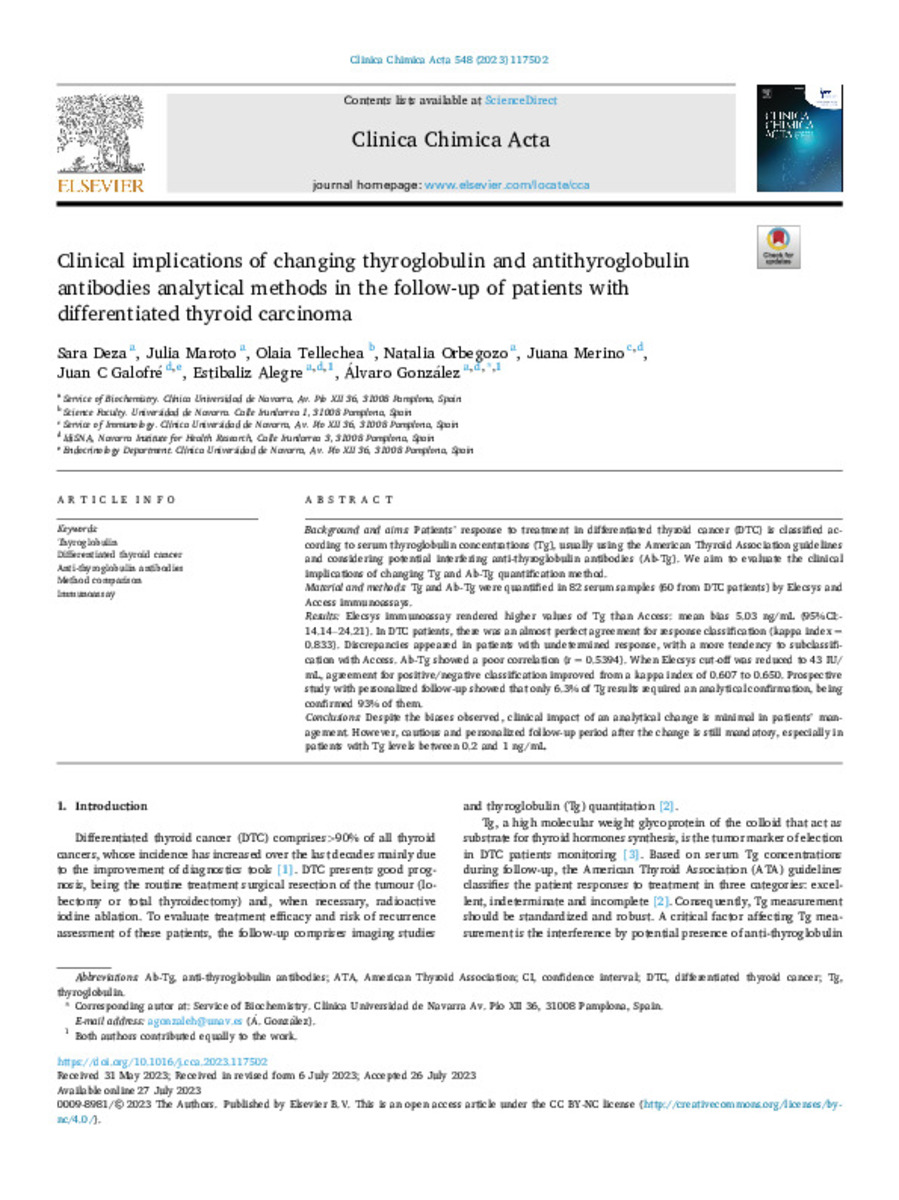Clinical implications of changing thyroglobulin and antithyroglobulin antibodies analytical methods in the follow-up of patients with differentiated thyroid carcinoma
Keywords:
Assay
Thyroglobulin
Differentiated thyroid cancer
Anti-thyroglobulin antibodies
Method comparison
Immunoassay
Autoantibody
Cancer
Note:
This is an open access article under the CC BY-NC license
Citation:
Deza-Casquero, S. (Sara); Maroto-García, J. (Julia); Tellechea, O.; et al. "Clinical implications of changing thyroglobulin and antithyroglobulin antibodies analytical methods in the follow-up of patients with differentiated thyroid carcinoma". Clinica Chimica Acta. 548, 2023, 117502
Statistics and impact
0 citas en

0 citas en

Items in Dadun are protected by copyright, with all rights reserved, unless otherwise indicated.











